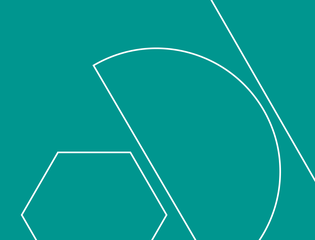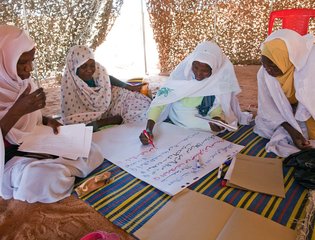Our capacity to share the other’s suffering - an emotion that has been called empathy, sympathy, compassion, or pity among many other names - contains something essentially paradoxical. The French philosopher Alain gives us a taste of its contradictory nature when he defines it as “a benevolence that casts a shadow over life” (“une bonté qui assombrit la vie”), a sort of goodness tinged with gloom.
Looking back, I think it is actually this “shadow” that we tried to understand better during a conference that took place last December at the University of Oxford on the theme “Humanitarian Workers: Personal Ethics, Psychology, and Lifestyle” convened by the Oxford Institute for Ethics, Law and Armed Conflict (ELAC). Hugo Slim and I had brought together a group of humanitarian professionals and European researchers to explore the personal motives and lived experience of humanitarian actors at the interface of ethics, psychology, and anthropology. Recognizing the significant role that individual actors play in shaping the evolving practice of humanitarian aid, we thought it was essential to come to a better understanding of such complex, multifaceted and at times, ambivalent experience.
The “shadow” in our benevolence was made obvious in this strange phenomenon observed in various contexts (such as medical, social, or educative) in which the helping relation, triggered by feeling the other’s suffering, becomes a relation of power. Several participants mentioned the different ways in which help becomes power. In the organisation for example, it can be observed in the lack of power sharing in the management or in the inequality that there may be between national and international staff. It also develops at the interpersonal level, in bad relationship within the team or in signs of disrespect with the people that the humanitarian initially came to help. We also saw how this “shadow” can grow within the individual helper. Long before today’s neuroscientists who called it “empathic distress”, Spinoza and Nietzsche had warned us against this phenomenon that increases the amount of suffering in the world by adding our distress in witnessing that of others.
But I am not being completely fair here; I have not yet told you the whole story. Indeed, what kind of world would we be living in if the other’s suffering found absolutely no echo in us? We would not have to worry about the shadows of pity but wouldn’t we actually call this an inhumane world?
The wonderful possibilities that opens up this capacity that we have to feel what the other may feel, was referred to over and over during the day of the conference. We heard great accounts of encounters with other people and other communities. We learned that it is not only trauma and distress that we can share, but also capacity for resilience. The strength given by the fact of working toward an objective that one finds meaningful was referred to as the ultimate and most effective “coping mechanism” - I am sure you feel to what extend the psychological concept is too small to contain what is at stake here…
A common notion of ethics that grants it the capacity of judging what is right and what is wrong locates ethics somewhere high above (I have to confess, I have not yet met anyone of this world able to reach such heights). This day of discussions and reflections in an effort to get a better understanding of the motivations and experiences of humanitarian workers made me wonder if ethics did not actually belong to a space, I would say, much lower. I am here referring to this space that calls us to under-stand, to stand under. What is an ethics that “stands under”? It is ultimately one from which we can’t escape, one that radically engages us, like the weightlifter under the dumbbell whose life is at stake in his or her capacity to hold the weight (it is with this picture that my father taught me what responsibility means).
In that sense, ethics is certainly not simply a theoretical exercise reserved to the protected environment of a pretty College in Oxford. It enjoins us to under-stand the dysfunctionalities and dissonances in what we do and who we are, but also not to forget the other side of the story, that of the strength of the sense of coherence and meaning in ourselves and our actions.
This day helped to shed lights on some of the ambivalence of humanitarian work. But beyond that, I think it touched on something more fundamental, something that has to do with our common humanity. On the one hand, there is no doubt that “humanity” refers to an intrinsic and inalienable quality. On the other hand, it is as certain that it is something that can be diminished or that can be enhanced.
By Anaïs Rességuier (ELAC, University of Oxford and University Paris Descartes)
“Humanitarian Workers: Personal Ethics, Psychology, and Lifestyle” took place at the University of Oxford on 17 December 2013 and was co-convened by Hugo Slim and Anaïs Rességuier as part of the Oxford Institute for Ethics, Law, and Armed Conflict (ELAC)’s Humanitarian Ethics Project.



